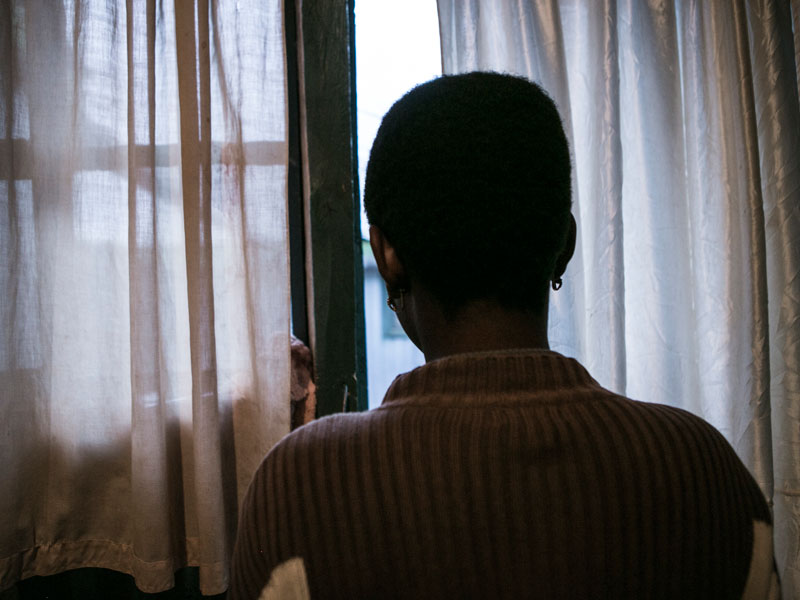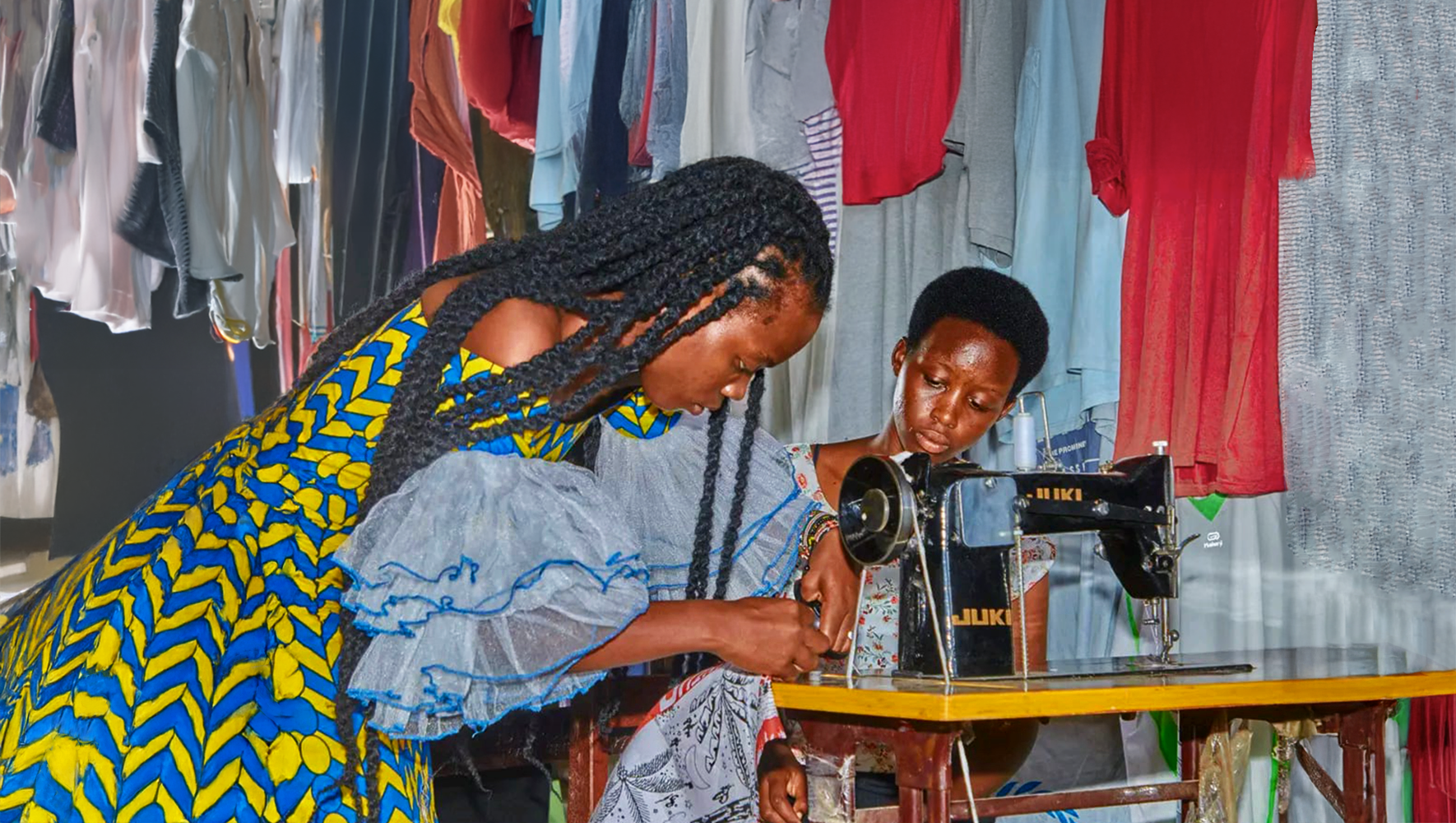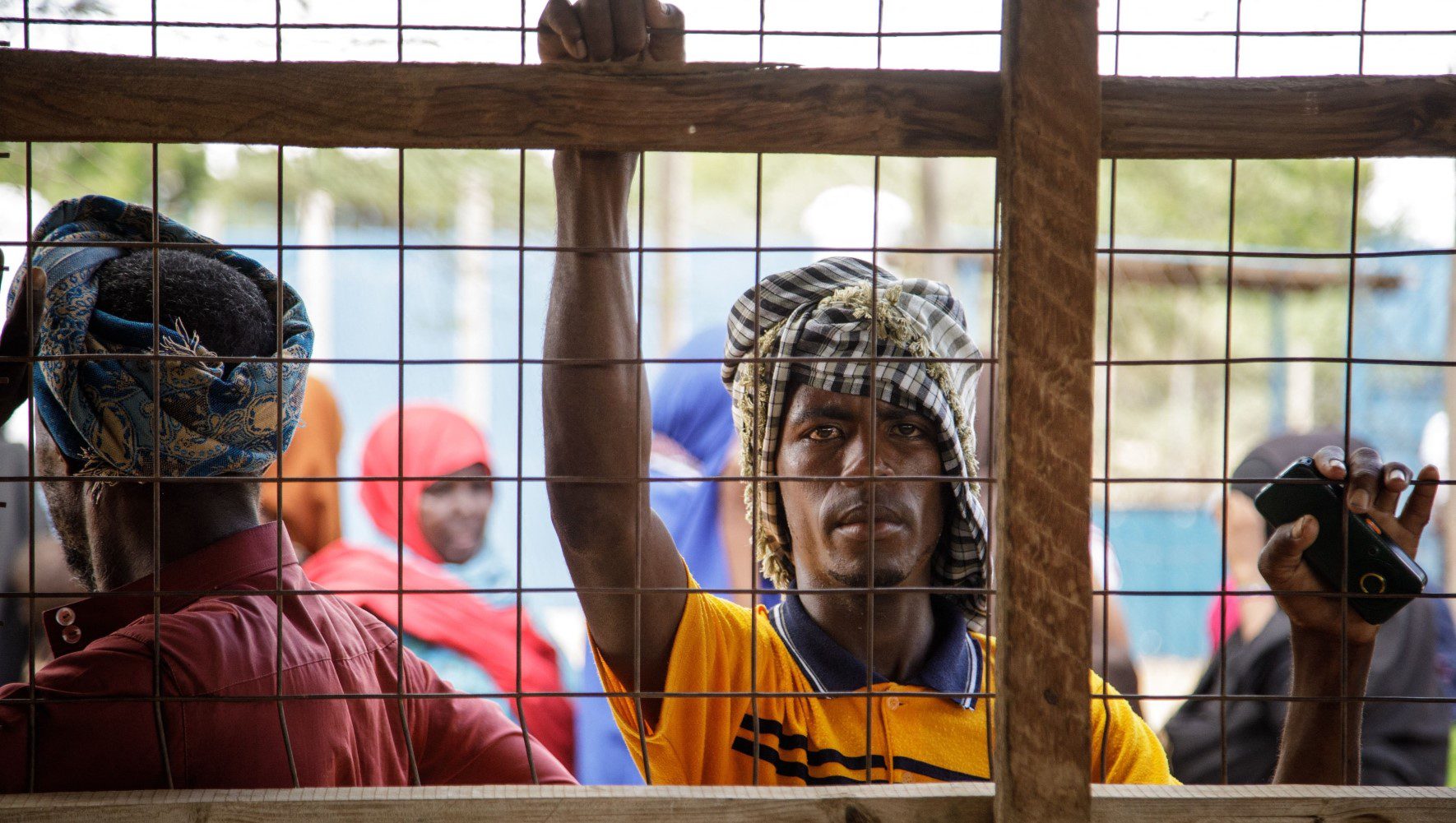GBV Social Support Group Brings Healing for Refugees
By Lucy Kiama, Kenya Country Director
Jan 10, 2020

A support group run by HIAS Kenya is helping lesbian, bisexual, and queer women who have experienced gender-based violence.
(Glenna Gordon/ HIAS)
In their new countries refugees have many challenges: navigating their changed environment and systems, loss of social networks, and cultural differences, to name just a few. For girls and women who undergo trauma due to violence including gender-based violence (GBV), life is even more difficult and extra attention must be paid to meet their needs.
With funding from the United Nations High Commissioner for Refugees (UNHCR), this year HIAS Kenya started support groups for refugee individuals who identify as lesbian, bi-sexual and queer. The group meets to share problems and experiences, network, and discuss possible ways of resolving their challenges.
Some of the issues the group addresses include: sexually transmitted infections (STIs), HIV/AIDS, harmful traditional practices such as forced or early marriage and Female Genital Mutilation (FGM), and basic skills for coping with the urban environment. They also learn and discuss the importance of engaging in resilience building and income-generating activities, and how to enhance their safety and security. Since February 2019, 8 LBQ women have benefitted from the support group sessions.
The support groups, which are facilitated by HIAS staff in the Mimosa head office, are not always easy for the participants. Although the women have gone through individual and group counselling, one of the first sessions was marked by silence and an unwillingness to participate in the group discussions. The facilitator, Maria Ofwona, played a great role in gradually putting participants at ease, reminding and reassuring them that the sessions were meant for their own benefit to find workable and lasting solutions to their problems and for mutual support.
Over time, participants eventually opened up and became lively and active during the group sessions. One remarkable session was when the participants discussed and learned about stress and anger management. They were able to openly share their accounts of frustrating situations without getting emotional or demonstrating anger. The women said they felt that being in a support group had helped them cope with trauma from violent moments. Some were even able to laugh at the terminology used by male government officials to describe them – ‘women having an interest in fellow women.’
Dembe* shared the difficulties she had with her mother, who was “domineering, controlling, and manipulative” and who never gave her the support she needed to accept her sexual orientation. “I ended up running away from home while I was still very young,” she said. “I miss my mother but I am grateful for the decision I made to run away, otherwise I would not have come this far.” After listening to the story, Abbo* said she empathized and was grateful for her courage in sharing the experience. One participant said the group was actually having fun and learning a lot. In a follow-up, Namizzi* explained how the support groups were successful. “I am less stressed nowadays, and disturbing thoughts no longer linger in my mind,” she said.
The group is using the newly gained knowledge and skills to help other women in the community who are facing or have faced similar challenges: “I usually advise my fellow women who report that they are suffering to not suffer alone and to go for counselling,” a participant said.
*Names are pseudonyms.



